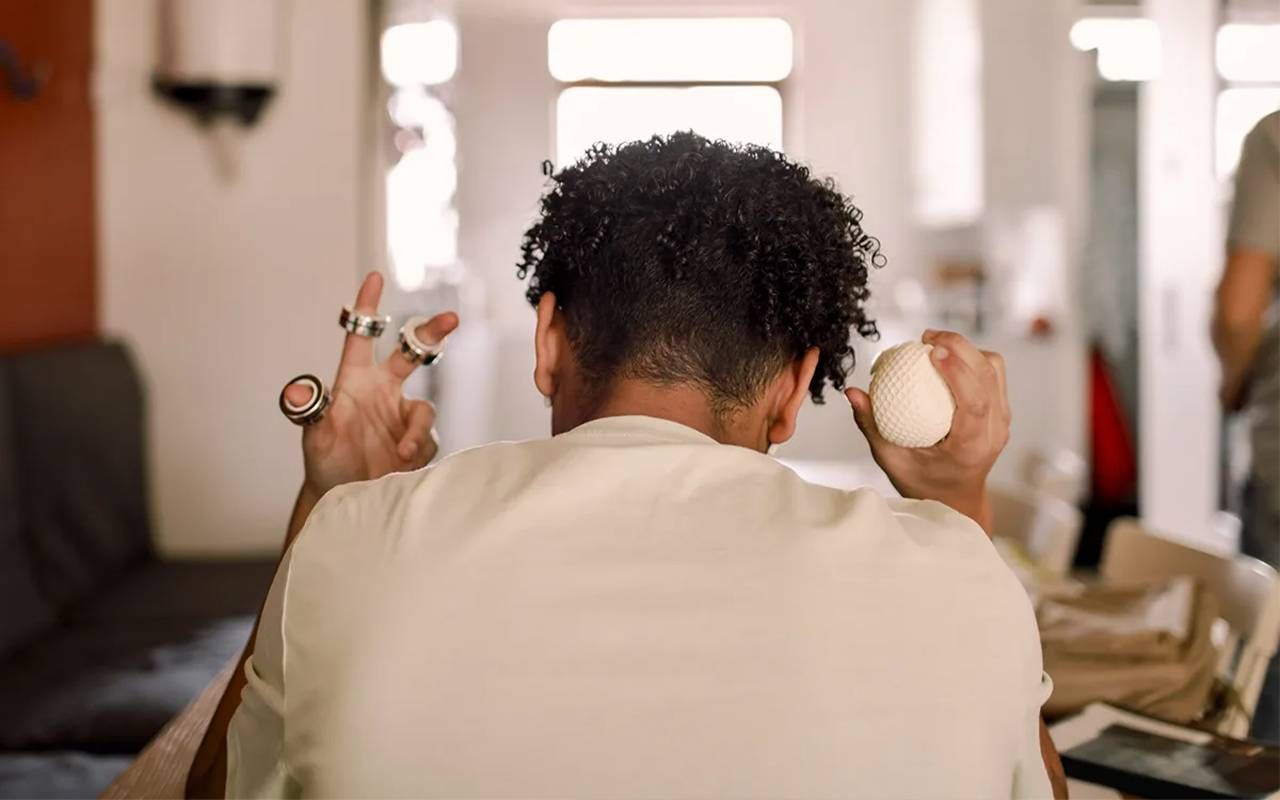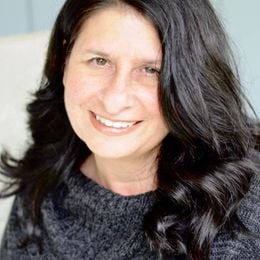When Your Adult Child Learns They Are Neurodivergent
It can be either a surprise or validation to discover your adult child is neurodivergent; here are ways to support them moving forward
Over the past two decades, individuals diagnosed with a neurodivergent condition have quadrupled due to new research, greater awareness and understanding, new diagnostic standards and the Internet. And school-aged kids aren't the only ones discovering their brain functions differently than the neurotypical.

Thanks to social media, particularly Neurodivergent TikTok, with more than 10 billion (yes, billion) views, many young and older adults have finally felt seen and understood by watching others' experiences. But what do neurodivergent, neurotypical and neurodiverse mean?
Definition of Terms
Neurodivergent refers to an individual whose thinking "diverges" from what would be considered societal norms and is used when referring to a single person. Conversely, neurotypical means that one's brain does not show signs of developmental differences. Lastly, neurodiverse encompasses multiple cognitive styles (including both neurotypical and neurodivergent) from one another.
Research states approximately 15% to 20% of people globally are considered neurodivergent.
There is a wide range of neurodevelopmental disabilities and other conditions that impact brain function, including Autism, Tourette's, Attention-deficit/hyperactivity disorder (ADHD), Down Syndrome, difficulty with writing or math, Post-Traumatic Stress Disorder (PTSD), and others.
According to The Centers for Disease Control, autism, one of the more commonly known neurodivergent conditions, occurred in 1:36 children in 2020; back in 2000, it was 1:150. Research recently published in the British Medical Bulletin states approximately 15% to 20% of people globally are considered neurodivergent.
If you are a parent, grandparent, or caregiver of someone who has discovered they are neurodivergent in adulthood, you may have many questions. Sharon Saline, PsyD, licensed clinical psychologist, author and coach, works with families of young adults to navigate natural feelings of regret, shame and guilt in missing something important in their child.
Neurodivergent refers to an individual whose thinking "diverges" from what would be considered societal norms and is used when referring to a single person.
"It's hard to tease out between typical adolescent behavior and what is different, especially in girls or those assigned female at birth," Saline explained. In the past, this population would typically be seen for depression and anxiety and then not evaluated or considered for other disorders. We know more now.
How to Offer Support
Become educated. Jeremy Didier, clinical social worker, parent coach, and CHADD (Children and Adults with ADHD) board member, said, "One of the first things you can do as a parent is to get educated." Many reputable sources provide current information regarding neurological disorders, including self-help books, parenting webinars or summits (such as ADHDPalooza), and social media.
Since discovering neurodivergence later in life is relatively new, there is little information dedicated to the parents of this population. The good news is that many books targeted at younger families easily transfer to those in later adolescence and throughout adulthood.
Equally helpful is to listen and read the stories of adults who have learned they are neurodivergent later in life. One example is Alyssa Herzinger, who, on the advice of a friend, was tested for ADHD at the age of 32.
"Growing up, I was a good student, high-achiever, and wasn't disruptive in classes or social situations," Herzinger said. She explained, however, that as she got older, life got more complex around decision-making and having to do more on her own.
"I changed my college major seven times, switched jobs frequently, and always had a lot of exciting interests for a few months, with 15 projects going on that I never finished. So, I shouldn't have been surprised about an ADHD diagnosis when reflecting back."
Herzinger agrees with Didier on the importance of educating yourself. In addition to the materials noted, she offered, "Be curious — not everything you read will apply to your child's specific experience."
Learn the language. Didier stressed familiarizing yourself with the condition(s) your child has been diagnosed with and the language surrounding it, or it can be triggering, making them feel invalidated.
Some people prefer person-first language (i.e., they are a person with PTSD) and think this terminology acknowledges that an individual is more than their diagnosis. Others favor identity-first language (i.e., they are an autistic person), feeling their neurodivergence is core to their identity. Ask which style is preferred.
If self-assessed, consider suggesting an official diagnosis. "A lot of information, including misinformation, is spreading through social media," said Margaret Sibley, Ph.D., professor of psychiatry and behavioral sciences at the University of Washington School of Medicine. "As a result, people may question whether they are neurodivergent later in life."
When considering a formal diagnosis, Stephanie Ruggiero, PsyD, Psychologist, ADHD, of Behavior Disorders Center, Child Mind Institute, explained, "It's good to get input from parents, caregivers, teachers, old report cards since neurodevelopmental diagnoses run an individual's lifespan."
Moreover, Ruggiero shared there can often be comorbidity (meaning multiple diagnoses) such as autism and ADHD, and that some providers may "stop looking" when they find something that explains the difficulties a person is experiencing, which could result in a delay in getting to the proper treatment.
With that said, many pros, cons and financial barriers exist to receiving a diagnosis that should be researched beforehand. Trust your adult child to know themselves best regardless of how a condition is determined.
Get diagnosed yourself. "I can't think of any better way to honor your kid's diagnosis than to get diagnosed yourself," Didier said. If a close relative receives a neurodivergent diagnosis, you may also have one. While neurodevelopmental disorders can develop from genetic and environmental factors, research indicates these conditions tend to run in families.
In her 60s, Christine Kageff decided to become a Guardian ad Litem for foster kids. During her training, as Kageff learned the signs of autism and complex behaviors, lightbulbs went on one after the other, she said. "I started to wonder whether I, my daughter, and my middle-school-aged granddaughter all might have an autism disorder."
After discussing the possibility with her 39-year-old daughter, Katya Siddall-Cipolla, they each went for an assessment, and all received an autism diagnosis. "Now I see the signs 100% in my childhood," Siddall-Cipolla said.
Help your adult child find themselves and build a life where they can be successful at something they are internally motivated to pursue.
"I was compensating for other neurodivergent family members, including my mom, presenting in ways that were more stereotypical." Siddall-Cipolla, who is now CEO and founder of Hopper Health, a virtual primary care health organization designed for neurodivergent individuals, says she found great support with online communities.
"TikTok has been a lifeline for people who are non-binary and women like me — I felt so alone, and now I understand why. It's been a massive relief."
Create a safe and open space for communication. A crucial part of communicating effectively with your loved one is ensuring they feel heard. "Use good, active listening skills to understand and validate your child's experience," Sibley said.
Parenting looks different based on age, stage and an individual's needs, but it never stops. "Go on the journey with your child," recommends Tamara Rosier, Ph.D., founder of ADHD Center of West Michigan and author of "Your Brain's Not Broken."
Ask open-ended questions and encourage them to share how they feel and what they notice about themselves now with this new information. She suggests not just talking about the condition but identity as well.
Lastly, ask your child how they know you love and support them because it is even more important to do so with a neurodivergent person. "[We] are out of step with the regular world."
Provide support, regardless of age. As noted earlier, support can show up in various ways, depending on if, how and whether your child wants it. "One way you can be a supportive parent," Sibley offered, "is by helping your adult child find themselves and build a life where they can be successful at something they are internally motivated to pursue."
For example, pose questions they can ponder: What are my goals? Interests? What steps can I take to pursue these? Depending on their age, they may need or want you to help them find social networks where they feel supported and can focus on their physical and mental health.
For instance, it is helpful to know vocational counselors can evaluate strengths and needs; colleges offer accommodations both in undergraduate and graduate programs, and more employers are providing alternative work arrangements to support the talents and needs of neurodivergent employees. Herzinger says having parents "just being there" is sometimes enough.
Focus on strengths, shift expectations, and avoid comparisons. An important fact to remember is that regardless of autism, ADHD, or other neurodevelopmental diagnoses, you do not need to fix your child. The art of parenting, whether for a neurodivergent or neurotypical offspring, is to celebrate your child's unique strengths and help find ways to use these to their advantage.
"Be as transparent as possible with your adult child. It never hurts to let them know that you are doing the best you can, that you know you've made mistakes, and that you're probably going to make more."
Rosier cautions against trying to "optimize" your child. Parents often see their kids' potential, yet it's more productive to focus on what is happening instead. Their future, and yours, may look different than you had imagined.
Didier suggests not comparing where your child is on their journey to their same-age peers or siblings. Stay off social media for a time, or you need to provide psychoeducation for your family and friends on what it means to be neurodivergent.
Be patient and ask for it in return. Saline explained that for some people with neurocognitive conditions, there could be significant executive function challenges, whether trouble with initiation or sustained attention, combined with the fact that their brains mature more slowly, bringing them three-to-five years behind their peers.
Therefore, be patient with your kids, help determine what challenges they may be facing, and identify ways they want you to support them. And rather than doing it "for" your child, Saline suggests collaborating by offering, "How can I support you or work with you?"
Likewise, ask for grace as you learn more about your child's diagnosis. "Be as transparent as possible with your adult child. It never hurts to let them know that you are doing the best you can, that you know you've made mistakes, and that you're probably going to make more."
"No matter what, you want to understand what they are going through and support them the best you can along the way," Didier said.
Find support for yourself. Depending on your child's or loved one's age, having resources and a community may be beneficial as you weave through the stages toward acceptance. Both you and your child may likely go through a grieving process for what you once thought you knew and what will be a new reality for your family.
In Herzinger's case, "It felt incredible to know that there were reasons why I had done what I had done, and that it was the way I was born. Not that I was a bad person." She continued, "Still, there was a lot of grief that my life could have been different if I had known earlier."
"Find a support group, commiserate and share stories," Didier said. It's always helpful to know you are not alone. Didier continues, "If you have a co-parent, take care of that relationship, too. I've seen lots of couples get entrenched in a blaming battle. Your relationship with your child is the most important thing. No matter how old they are."


